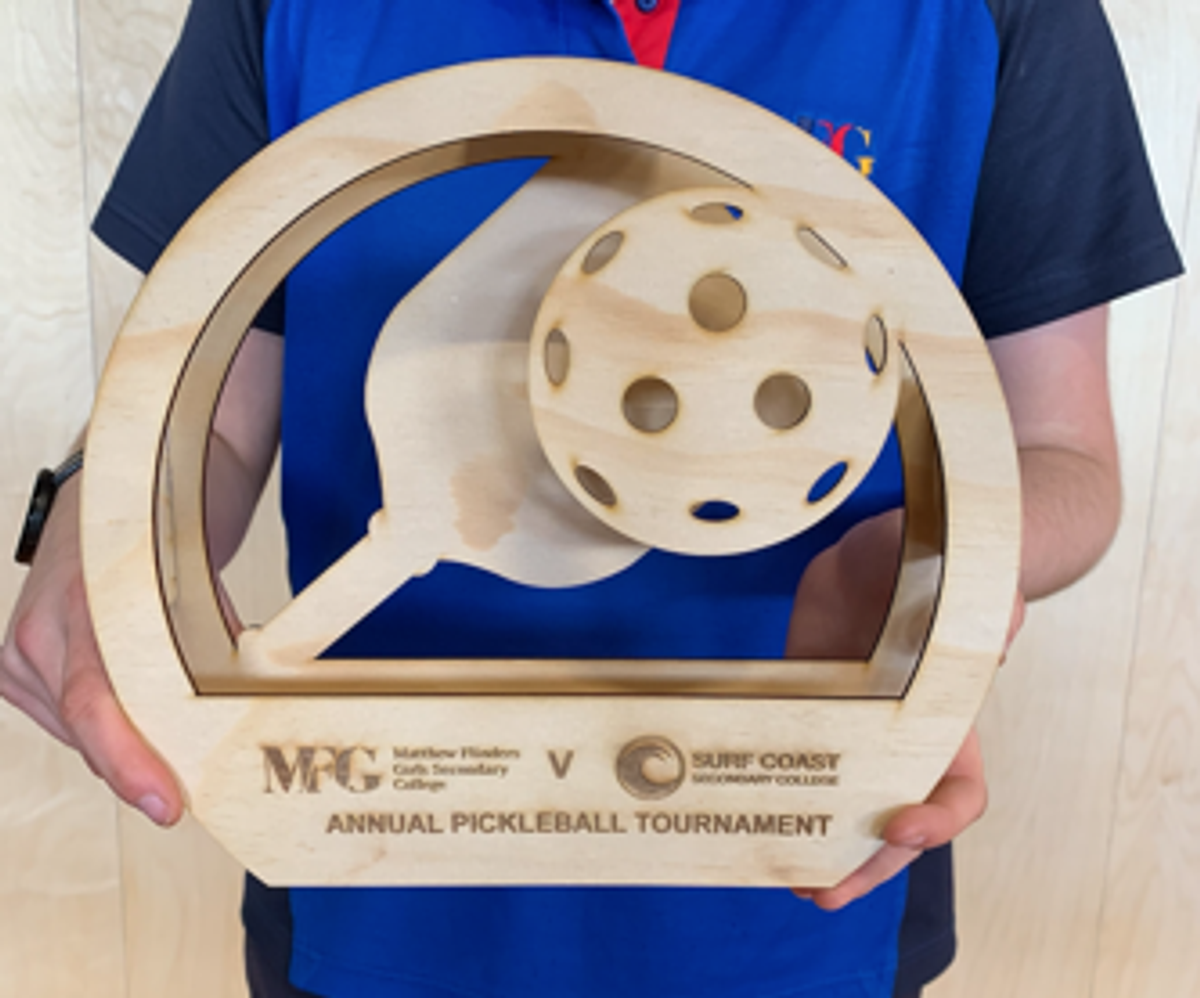WELLBEING

SURFSUP WITH THE WELLBEING TEAM
The end of term is almost here and the count down for the term 3 holidays is defiantly in all our minds as a break from winter and warmer days can be felt for these school holidays.
Planning for holidays takes place many weeks or months earlier- but for others it could be a chance to be spontaneous and just head off with friends or family for a quick getaway.
The year 12 students will be preparing for the final count down to the end of their school careers – some taking this opportunity during holidays to get prepped for exams.
Exercise or softer forms of physical activity is a very important aspect of keeping a positive mind set leading up to exam time. All the preparation in the world will benefit from taking the time to move the body and enjoy a daily routine of something physical. Whether that’s a walk with your dog, a bike ride with some friends or taking a swim at the beach – all lead to improved mental stamina. This newsletter will look at how exercise affects mental health and wellbeing.
How does exercise affect mental health and wellbeing?
We all know how important exercise is for keeping us physically healthy. Physical activity promotes many aspects of child and adolescent development, including social and emotional skills, as well as physical development of motor skills. But did you know that exercise can also help keep you mentally healthy?
Research shows that people who exercise regularly have better mental health and emotional wellbeing, and lower rates of mental illness.
Taking up exercise seems to reduce the risk of developing mental illness. It also seems to help in treating some mental health conditions, like depression and anxiety. For example, for mild-moderate depression, research suggests physical activity can be as effective as antidepressants or psychological treatments.
Why does exercise make us feel better, mentally?
Often, people who exercise regularly do it simply because it makes them feel good. Exercise can boost your mood, concentration and alertness. It can even help give you a positive outlook on life.
The link between exercise and mental health is complicated. Inactivity can be both a cause and a consequence of mental illness, for example. But there are lots of ways that exercise can benefit your mental health, such as:
- The levels of chemicals in the brain, such as serotonin, stress hormones and endorphins, change when you exercise.
- Regular exercise can help you sleep better.
- Exercise can improve your sense of control, coping ability and self-esteem. People who exercise regularly often report how good achieving a goal makes them feel.
- Exercise can distract you from negative thoughts and provide opportunities to try new experiences.
- It offers an opportunity to socialise and get social support if you exercise with others.
- Exercise increases your energy levels.
- Physical activity can be an outlet for your frustrations.
- Exercise can reduce skeletal muscle tension, which helps you feel more relaxed.
- increases the connections between the brain neurons, which improves memory and learning capacity
- provides children and young people with an outlet for excess energy and frustration, which relieves tension
- provides an opportunity for children and young to socialise and meet new people, reducing loneliness and isolation
- improves motor and cognitive skills, which boosts self-esteem
- distracts children and young people from negative thoughts.
The physical benefits of exercise are also important for people with mental illness. It improves your cardiovascular health and overall physical health. This is important because people with mental health issues are at a higher risk of suffering from chronic physical conditions such as heart disease, diabetes, arthritis and asthma.
Exercising for your mental health
If regular exercise is not already a part of your routine, you might be wondering how much you need to do to give your mental health a boost.
The really good news is exercise doesn’t have to be strenuous or take a long time. Studies show low or moderate intensity exercise is enough to make a difference in terms of your mood and thinking patterns.
Any exercise is better than none. Going for a leisurely walk, or activities like stretching and yoga, can also have huge benefits on your mind and body. Even doing jobs around the house- like sweeping, mopping, or vacuuming can give you a mild work out.
How to get started with exercise
It can be intimidating to start exercising if you haven’t done it in a while, but a plan can help you start and stick with it.
Your new exercise plan has a better chance of success if you:
- choose an activity you like, or have enjoyed in the past, that suits your fitness levels and abilities
- start small – build up your activity gradually. Ideally, vary your activities so you don’t get bored
- write your plan in your diary or on your calendar, so it’s part of your schedule
- regularly revisit your exercise plans, and try something different if it’s not working out for you.
Exercise outdoors
For even greater benefits, try exercising outdoors.
Some recent studies have found people report a higher level of vitality, enthusiasm, pleasure and self-esteem, and a lower level of tension, depression and fatigue, after they have walked outside. People who exercise outside also say they are more likely to exercise again than those who stay indoors.
And, people who exercise outside do it more often, and for longer, than those who work out indoors.
How to be more active every day
Make exercise part of your everyday activity. Try walking or cycling instead of using the car. Get off a tram, train or bus a stop earlier and walk the rest of the way. Or spend some time walking your kids to school. Get active around the house by doing some gardening, washing the car or cleaning the window.
Inaugural Pickleball Competition
Many of you would have heard about the new growing sport Pickleball – especially from our Health Promotion Nurse Mel who is a regular to the court. Last year the school was successful in obtaining a grant from Surf Coast Shire for Mental Health Month and was able to purchase 3 sets of nets/paddles and balls for the school. Over the past 12 months students have been given the opportunity to play at school in their Health and PE classes.
Taking it up a notch on Thursday 31st August, Matthew Flinders and Surf Coast Secondary College battled it out in the regions first ever Interschool Inaugural Pickleball Competition held at Matthew Flinders. A team of 8-12 students from each school were ranked from 1-8, stepped onto the court to battle it out for the trophy and bragging rights of Pickleball Champs. Some of the students were first time pickle-ballers but learnt fast and we saw some awesome rallies. By recess the tally was even. The next rounds saw MF steam ahead, but by lunch time the wins were only 1 ahead to MF. After some competitive teacher games at lunch time, including MF Principal Ms Crofts showing her passion for the sport, the teams were neck and neck going into a tie breaking round with scores 12/12. The enthusiasm from the two schools was palpable- the win was anyone’s- however after a nail-biting end in the very last game it saw a magical win to Matthew Flinders 14 games to 13 games. MVP presentations and the awarding of the Winning School Trophy ended the day on a real positive note - described by students from both schools as “so much fun- can we do it again”.
The event was a huge success and the future of Pickleball at these two schools is only going to grow and become such a wonderful inclusive event for everyone to be involved in. The next steps will be to encourage other school in the area to get involved with Pickleball at their schools .
As always reach out if you need further support – The Wellbeing Team Michelle, Mel, Jazz, Sarah and Rachel.
Accessing Wellbeing
Students can access wellbeing via an online booking form for Wellbeing and health related matters.
Student Wellbeing Check In Request Form
Parents/ carers can access supports from Wellbeing for their young person via the Administration Office.
Mate Space / Headspace
Headspace Geelong has been hosting Mate Space sessions in Torquay.
These male only sessions are held inside the Youth Centre at KMCC and runs from 4pm-6pm.









